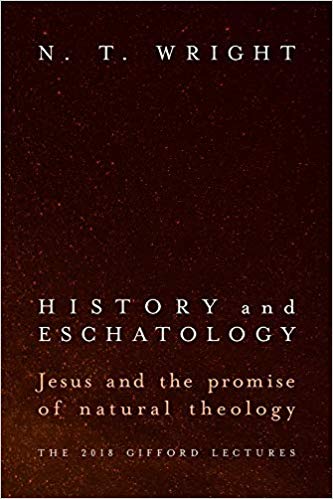BEN: Missing from your good discussion is much interaction with one of the pet texts used to talk about natural theology, namely Rom. 1.18-32. It appears to tell us that the reality of the
real Biblical God and his power is evident in all of creation, and so there is no one who has no knowledge of the real God. Rather what has happened is ‘they have exchanged the truth of God for a lie’. Now one cannot exchange something that one has never had in hand, so what do you take Paul to mean in that key passage? It would seem to be saying that yes there is such a thing as the revelation of God in his creation, but fallen human beings have deliberately suppressed that source of knowledge, hence ‘natural theology’ is an exercise in futility?
TOM: I think this is covered in what I said above. Yes, it’s funny that I of all people would not instantly reach for Romans. Ideally I’d like to factor in an exegesis of Romans 1 but that will have to wait. There is plenty of Romans 8, though, and people might like to work back from that!
BEN: In many ways the modern discussion in theological circles has been framed by the debate between Barth and Brunner. You comment at one point that you found Alistair McGrath’s treatment of Brunner and his arguments strange, or perhaps wrong. In what way? You seem to suggest Barth with his NEIN to natural theology has the better of the argument. Why?
TOM: I think I said that McGrath’s position was not uncontroversial – he is trying, very interestingly, to do some rehabilitation of Brunner and I think that’s a necessary task even if the jury is still ultimately out. I think in the context, with the Nazis using something they were calling ‘natural theology’ to justify their ideology (‘God has raised up the German nation for this time…’), Barth’s NEIN was necessary but perhaps as the first word in a longer and more nuanced sentence. Brunner may at least have been naïve. But of course Barth had form on this, as his Romans commentary was already saying NEIN to his own teachers, like von Harnack, and for similar reasons. Underneath this was – quite explicitly in Barth’s text – his rejection of ‘catholic’ theology which always wanted to retain something that it called ‘natural theology’ for historical reasons (Aquinas etc.) but also theological reasons (worried that Protestantism was a form of dualism – a worry that was at least partly justified). . .













